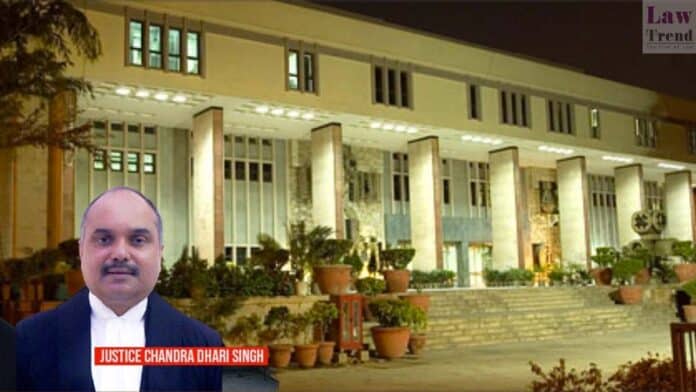The Delhi High Court has upheld the legality of the city civic body’s decision mandating marking of attendance by all employees of its two hospitals through a mobile application, saying the measure was taken for improving the healthcare system and instilling discipline and accountability among its employees.
Justice Chandra Dhari Singh dismissed the petition by Paramedical Technical Staff Welfare Association of the Municipal Corporation of Delhi (MCD) challenging the policy, and said without measures to ensure attendance and accountability, there was a “real risk of systemic failure in the healthcare sector”. He rejected the petitioner’s contention that the new system of marking attendance amounted to infringement of the employees’ right to privacy.
“In the present case, the implementation of the application is intricately connected to the initiative of instilling discipline and ensuring accountability among employees, particularly in terms of attendance. This decision can be unequivocally characterized as a measure taken for the improvement of the healthcare system,” said Justice Singh in a recent order.

“The decision to introduce the application is a strategic and necessary step toward fortifying the healthcare system and sustaining the vital contributions of the staff and therefore, the same cannot be interfered with by the Court since the same is not illegal,” the court held.
The petitioner had sought a direction for quashing an August 2022 order of the MCD which said the salaries of all employees of Rajan Babu Institute of Pulmonary Medicine and Tuberculosis (RBIPMT) and Maharishi Valmiki Infectious Diseases Hospital (MVID), which included members of the petitioner association, will be released only after they marked their daily attendance through the MCD SMART App.
The petitioner contended the mobile application (app) based attendance system cannot be sustained as it forced poor employees to purchase smart phones and also violated their right to privacy.
The court noted purchasing or possessing a smart phone was not a compulsion as the employees have alternative methods to mark their attendance either through the supervisor or any other employee’s phone.
It said the issue of privacy and security also did not arise as the application was not developed by an unknown source but a body functioning under the Ministry of Electronics and Information Technology after due diligence with regard to potential threats of security breach.
The court said its power to interfere in policy decisions of the executive, especially when it concerns public health, is limited to cases of arbitrary or unfair conduct and, in the present case, the decision was rooted in broader public interest.
“It is crucial to emphasize that employees cannot reasonably object to a system implemented for the enhancement of hospital administration… Therefore, employees are expected to align with these measures, recognizing the inherent linkage between compliance and the smooth functioning of essential public services,” the court said.
Also Read
“The introduction of such a system is to ensure transparency and efficiency of working by state departments and timely delivery of service and welfare schemes to the public, an objective desirable for any public entity. Therefore, this Court does not deem it necessary to term the introduction of similar system in the respondent MCD as illegal,” the court observed as it noted that states like Jharkhand and Andhra Pradesh have also introduced a similar practice for marking the attendance of government employees.
The court said a healthcare system run by public authorities is one of the most pivotal concerns for any nation and therefore the absence of workers entrusted to run it can create a situation which can hamper the effective functioning of the entire system.
The advancement of technology has helped the public sector in many ways and protesting against such advancement only shows the intent of the employees to not comply with the orders of the MCD, the court said.
It also underscored that public servants, while accepting an offer of appointment, make a declaration that they will abide by service rules and other conditions imposed by the government for better administration.







